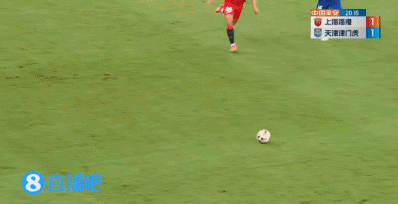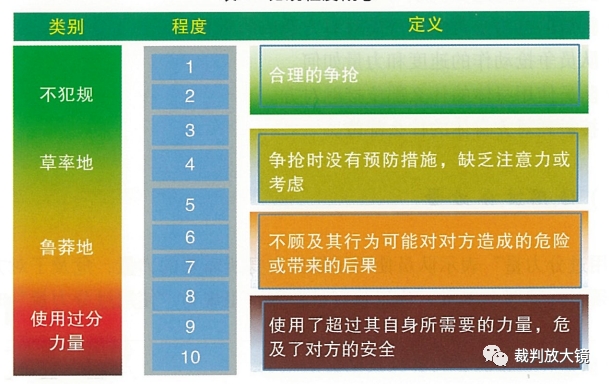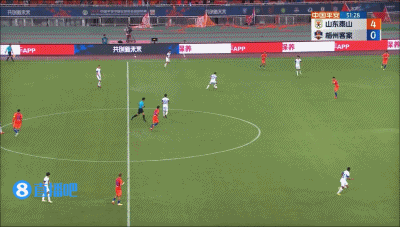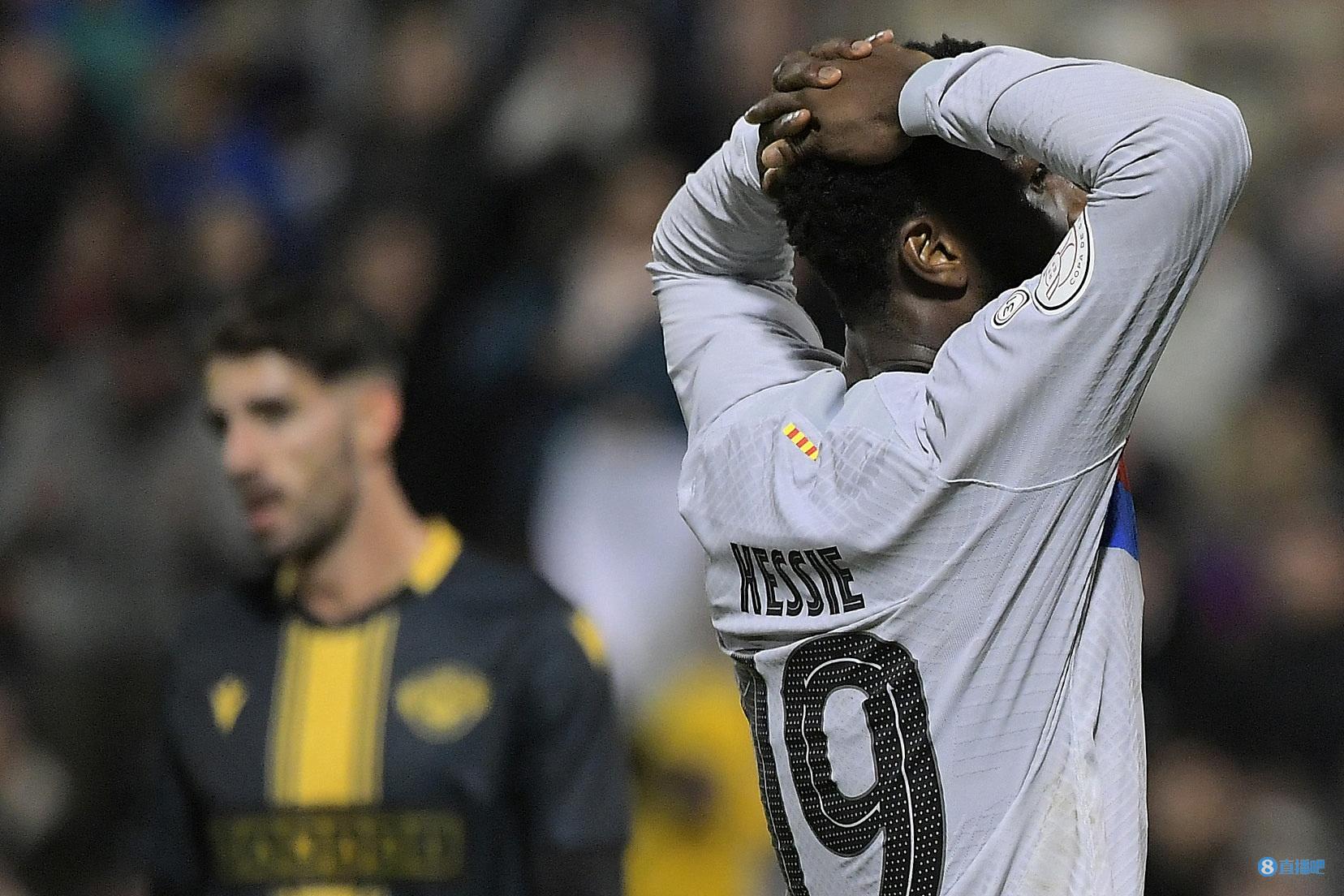The 20th round of the Chinese Super League played first yesterday. Shanghai Harbor won Tianjin Jinmen Tiger at 2:1 at home and continued to consolidate its position as a leader. In the game, the three goals of Haigang were all invalid because they were first punished for hors-jeu. However, these three goals were not as good as Zhang Lin’s flying shovel tomorrow, which led to the injury of the other side, however, the referee only showed the yellow card warning, which brought great controversy.


The criteria for determining the accuracy of fouls come from the relevant provisions of the rules, but the rules cannot cover all situations. Therefore, when some rules are not clear, the referee needs to combine the common sense of football and the spirit of football rules to make a reasonable judgment, so there is also the “referee thinks” mentioned in the rules. The referee thinks that the referee has given certain discretion, however, this kind of discretion cannot be infinitely expanded, and all penalties based on the referee’s own cognition should also be within the framework of football spirit and football rule spirit.
The rules of modern football competition follow six spiritual principles, but the first thing is to protect the health and safety of athletes. The premise of carrying out any sports is to promote the physical health of participants, exercise that is harmful to health will not last long. Football is a sport with fierce competition and frequent physical contact. Rules allow reasonable physical contact between players and advocate a brave, tenacious and active competition style. However, confrontation cannot be unlimited, although accidents will inevitably occur in the competition, the rules do their best to protect the health of athletes. Therefore, the referee is required to punish harmful or dangerous foul actions in the competition, ensuring the smooth progress of the game is also conducive to the safe development of football.
In the process of competing for the ball, the players are allowed to use other parts of the body except the hands and arms (except for the relevant rules). When using the snatching action in the scramble ball, the referee should have accurate judgment and appropriate punishment for it by using the shovel snatching or other snatching action without falling the ground. The referee should consider the following four points:
(1) players can snatch from the front, side and back of the other side, as long as the purpose is for the ball, and there is a chance to grab the ball, the intensity of the action (speed and strength) within a reasonable range.
(2) touching the other team member before touching the ball, failing to take into account the other party’s safety or using excessive strength to touch the other team member is a foul, and disciplinary punishment can be given according to relevant rules and regulations.
(3) after touching the ball, it touches the opponent’s team member. If the subsequent action is caused by natural inertia, the action intensity is within a reasonable range, it is not a foul. If the subsequent action is not a continuation of the normal technical action and an additional action, it is a foul.
(4) only touching the ball and not touching the opponent’s players does not mean that there is no foul. If the snatching action is used without considering the safety of the other team members, it is also a foul because the timely Dodge of the other team members does not touch people.
In the game, in order to compete for the ball, the use of a snatch that endangers the safety of the opponent’s players or uses excessive strength and brutal methods should be regarded as a serious foul. Any team member uses one leg or two legs to compete for the ball from the front, side or back of the other team member, and uses excessive force or kicking movements that endanger the safety of the other team member, it is a violent foul deliberately imposed on the other team members, which is regarded as a serious foul.
So is Zhang Linlin’s shovel reckless or serious foul? When judging a penalty, the referee should not only judge the intention of the action, analyze the possibility of competing for the ball, consider the intensity (strength and speed) of the action, but also observe the result of the action and the additional action after the competition, properly grasp the foul degree of “hasty, reckless or excessive power”, judge the foul and impose corresponding disciplinary punishment.

Many people say that Zhang Linjiao finally kicked tomorrow’s feet, not ankles or above, so it is no problem to give this yellow card. However, the rules do not clearly state that the contact position of the tackle interception must be above the ankle, but only that whether excessive power is used and whether the grab is dangerous to the other party. The reason why the ankle is used as a reference is that the above ankle is more likely to be injured than the foot surface and feet, or the injury is more serious, therefore, in the judgment of some tackles, if the foot is knocked down, a reckless foul may be punished. However, Zhang Linxi came to the shovel quickly. The speed, distance and strength were far beyond what he needed, and the legs were straight, without the performance of closing the legs and leaving the ground, the final contact kicked the joint of the foot and ankle from top to bottom, so this is basically that the degree of foul of the red card behavior shown in the above figure is close to grade 9, so it is more appropriate for the referee to punish serious foul.
Of course, as we mentioned earlier, the identification of foul degree is considered by the referee. Therefore, when the referee has the right to decide freely, the identification degree of the referee’s personal foul, personal psychological quality affects the referee’s final performance. Du Jianxin, as a young referee, got the same heavy responsibility as McGrady this season and also played several focal battles, but compared with McGrady, his performance was much worse, sometimes his punishment was not decisive and firm enough, and sometimes he didn’t have the courage to play cards. It took him more than 20 minutes to play the game at the home court of the harbor. It took him a lot of courage to play a red card. The same penalty in the second half can be seen:
In the second half, there was a breakthrough on the Kalong side of the road. Tianjin team members committed tactical fouls in the ocean. The referee sentenced the fouls but did not give cards. This caused the coach of the harbor to be quite dissatisfied. Why was he dissatisfied? Because Yu Yang already had a yellow card, if you give it again, you will be punished. The referee himself hesitated. We think this is a spa. Some people say that it is OK not to play cards, which also reflects the referee’s high EQ, in fact, most of the time, the reason why Chinese referees can bring such a big dispute is that apart from the fact that fans do not understand the rules, they are also punished by their so-called high EQ. The referee’s penalty requires EQ, But EQ also needs to be used just like a benefit. Inappropriate use will only backfire.

Finally, why does VAR not intervene? Because as we said before, many referees, including many professional referees, judge whether it is a serious foul. The first thing they judge is whether the contact point of the tackle is above the ankle. If not, they think it is reckless, therefore, he did not think it was a clear and obvious mistake for the referee to show the yellow card.
Finally, let’s talk about a media reporter who is in the harbor. He doesn’t think it’s a red card. He thinks it’s a yellow card. I think everyone has a different understanding of the rules, no one can guarantee that what he said is right. We have also said many times that our interpretation is also the word of our team. We try our best to interpret it in a neutral way, of course, it does not rule out that we have a bad influence on a certain referee, and there is a certain bias in the stage, but we still understand and interpret it from the rules and football spirit, of course, the ability level is limited, so the interpretation is not necessarily correct.
The logic of this sentence is that VAR does not intervene or append, which means that they are right to impose penalties. Is all the penalties of VAR correct? Huang Yi was sentenced to a yellow card when facing the obvious fastening ring violence of the players, and the VAR was not connected at that time. Is the judgment of the on-duty referee and VAR correct? If it is correct, why do the Football Association impose additional penalties?


